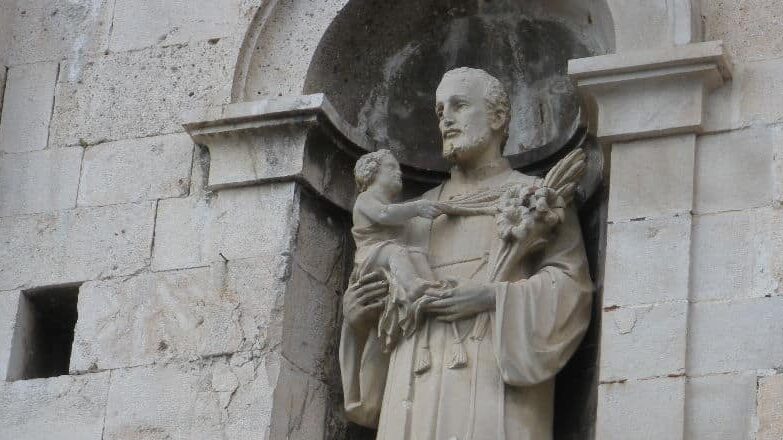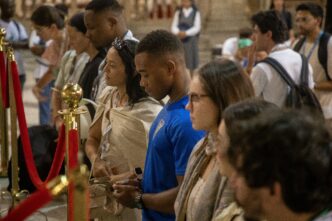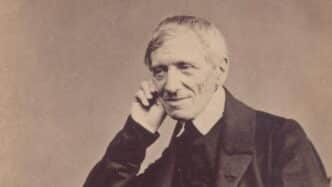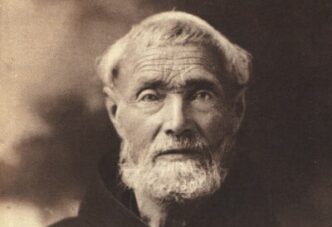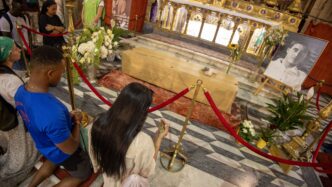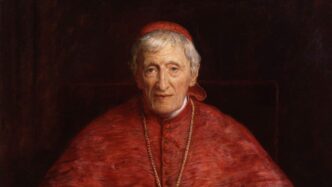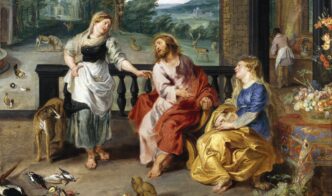St. Cajetan
Feast day: Aug. 7
St. Cajetan of Thiene was an Italian priest who founded a religious order devoted primarily to the formation of priests during the Counter-Reformation. Members of the Congregation of Clerics Regular (Theatines) were models of asceticism and charity toward the poor at a time when the clergy were known for their corruption and indifference. St. Cajetan also strove through educational efforts to stop the spread of heresies promoted by John Calvin, Martin Luther and Ulrich Zwingli to Italy in general and Rome in particular.
Born in 1480 in Vincenza, St. Cajetan was a studious boy and went on to graduate from the University of Padua with a degree in both civil and canon law. He worked as a diplomat for Pope Julius II and took part in reconciling the Republic of Vienna with the pontiff. After his ordination to the priesthood in 1516, he could have had a prominent position in the Curia as adviser to the pope. Instead, St. Cajetan chose to help the poor and the sick.
He founded the local Oratory of Divine Love in Rome, a group of pious priests and prelates, to perform charitable works. He revitalized other oratories in Vicenza and Venice and founded a hospital for the incurably ill in Venice. St. Cajetan told his fellow priests, “We try to serve God by worship; in our hospital we may say that we actually find him.” He also founded a charitable nonprofit bank to offer poor people an alternative to loan sharks.
Moved even more by the spiritual diseases plaguing the Church, in 1524 St. Cajetan, with John Peter Carafa (who later became Pope Paul IV) and two others, formed a religious order with the charism of reforming diocesan priests. Working to combat the errors of Martin Luther that were spreading throughout Switzerland, Germany and England, St. Cajetan and his companions preached the Gospel and reformed lax morals. They trained priests in the study of the Bible, in the faith, and in restoring proper worship in parishes. They helped the laity grow in the virtues and encouraged them to receive the sacraments frequently. St. Cajetan also started a center for Catholic reform at the church of San Paolo Maggiore in Naples as a means of checking the advance of Lutheranism.
St. Cajetan suffered in his last moments a kind of mystical crucifixion. While his doctors ordered him to lay on a mattress instead of the bare boards he used for his bed, St. Cajetan replied, “My savior died on a cross. Allow me at least to die on wood.”
Despite its strict rule of life and vow of poverty, the Congregation of Clerics Regular grew rapidly. The Theatines played a key role in the reformation of the Church and founded many beautiful churches. They were also the first religious order to found papal missions in foreign countries, such as India, Burma and Peru.
Reflection
Dear Jesus, give me the zeal of St. Cajetan to so love your Church that I want to work to renew it. May my heart also have his special love of the sick and the poor.
Prayer
O God, who endowed the priest St. Cajetan with the grace of imitating the apostolic way of life, grant us, through his example and intercession, to trust in you at all times and to seek unceasingly your Kingdom. Through our Lord Jesus Christ, your Son, who lives and reigns with you in the unity of the Holy Spirit, God, for ever and ever.

